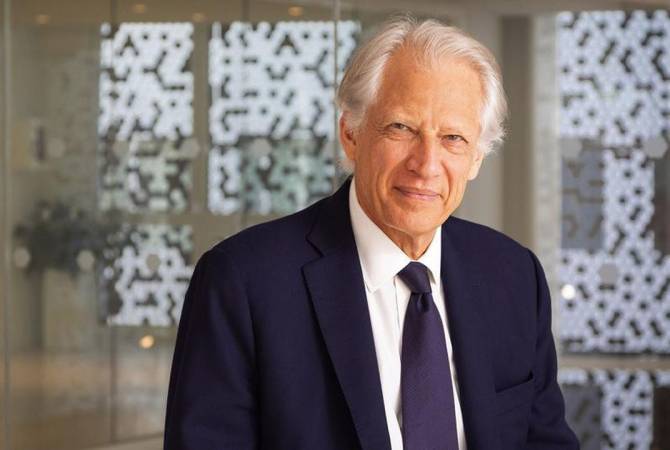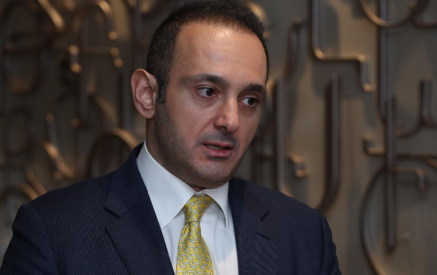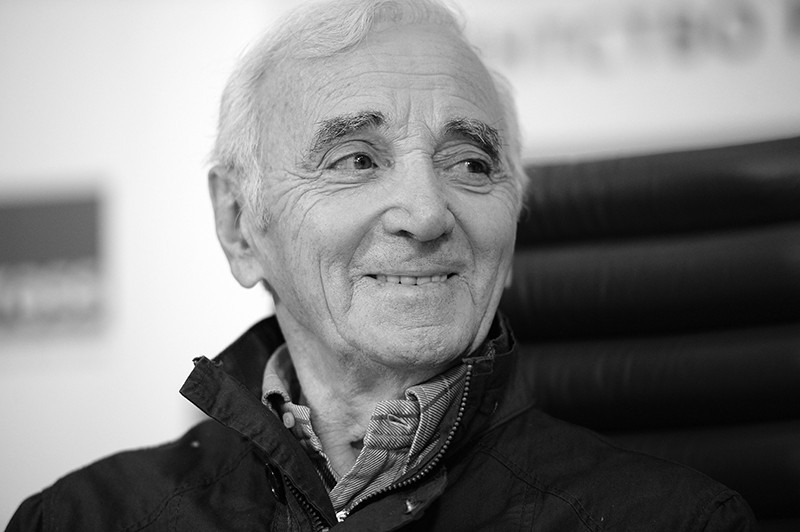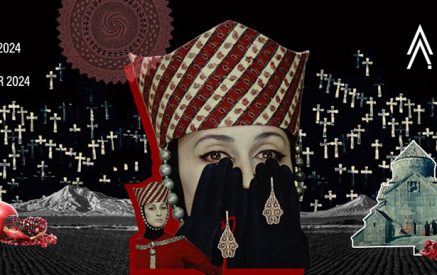ARMENPRESS. Dominique De Villepin, an independent member of the Board of Directors of the Armenian National Interests Fund (ANIF), says it is still early to give a meaningful evaluation to the Fund’s activities. However, he says that in this period of less than 4 years, ANIF has gained the trust of some major institutional investors and indeed has implemented a number of successful deals.
Dominique De Villepin, a former French Prime Minister and former Foreign Minister, told ARMENPRESS in an interview that ANIF is undoubtedly on the right track.
- Mr. de Villepin tell us please what is your connection to Armenia and in this context how did your journey with the Armenian National Interest Fund start, how did you become member of ANIF’s Board of Directors?
Armenia and France have always had a special historical and cultural bond. France is home to thousands of Armenians, especially after the Genocide of 1915. Many Armenians have become successful in France and some, like Charles Aznavour, Henri Verneuil or Michel Legrand, have become icons of the contemporary French culture. So France’s close ties with Armenia after its independence were a given. As both Prime Minister and Foreign Minister of France I was keen to see French-Armenian ties develop, deepen and always kept good relationships with my Armenian friends after I left office. I received an invitation to join ANIF’s Board in 2019 and happily accepted the offer. The creation of Armenia’s Sovereign Investment Fund seemed timely and constructive.
- Mr. de Villepin, what investment opportunities does Armenia have? What kind of challenges and opportunities is Armenia facing from an investment destination perspective?
I believe the biggest challenge for emerging economies, and especially small post-Soviet countries such as Armenia, is that it is a little known destination for potential investors and many may consider investing there risky or simply be unable to measure associated risks. Armenia has a lot of competitive advantages, not the least of which is its creative and hardworking people, its democratic standing, its willingness as a nation to be integrated into the global market. The ability to present this to potential investors will determine its ability to attract and retain investors.
Read also
- In this context, what is the role and importance of ANIF in Armenia?
Sovereign investment funds play an important role in directing and leading a country’s investment and economic path and ANIF can be decisive in setting the right benchmarks and choosing sustainable paths for the country’s economic advancement. The model ANIF has chosen is a tested, workable model and I trust Armenia needs institutional guidance for investors that ANIF provides. That is one of the many roles institutions like ANIF have.
- ANIF has been active since spring 2019 and has managed to implement various successful projects. How would you rate the activity of ANIF, how do you evaluate the work of the executive team?
It is still early for a meaningful evaluation. However, in this period of less than 4 years, I believe ANIF has gained the trust of some major institutional investors and indeed has implemented a number of successful deals. That, without a doubt, means that we are on the right track. As I said, people are Armenia’s asset and I believe ANIF’s team is the quintessence of that competitive advantage. Having the right people in the right place, armed with the right strategy and governance is extremely important in maintaining the trust of investors. I think there is more to come both for ANIF and for Armenia and I am hopeful that both ANIF and Armenia will be able to overcome challenges and seize opportunities in the best possible manner.
- In what areas of economy do you see the need for ANIF’s active presence?
I think that Armenia, as any developing economy, should be open to all kind of partnerships to attract investments in virtually all areas of its economy, of course within bounds of high ESG standards. As already mentioned, many investors may prefer to have institutional support when investing in a little known investment destination like Armenia and many would want to see the state sharing the responsibility for the project and ANIF is instrumental in this sense. I also believe that the institutional knowledge and experience that ANIF has accumulated in this short period will be helpful for Armenia in all its investment related exercises in various capacities.
###
Mr de Villepin is a French politician and a diplomat with a career spanning several decades. Mr de Villepin graduated with a degree in Law and Letters from the Institute of Political Studies in Paris, and the National School of Administration. In 1980 he was appointed to the Directorate of African and Malagasy Affairs of the Quai d’Orsay, he then served in the French Embassy in Washington DC from 1984 to 1989. He went on to advise the French Embassy in New Delhi between 1989 to 1992. In 1993, Mr de Villepin became the Director of the Office of the Minister of Foreign Affairs, Alain Juppé, prior to being appointed by President Jacques Chirac as the Secretary General of the Elysée from 1995 to 2002. Mr de Villepin was entrusted with the Ministry of Foreign Affairs from May 2002 to March 2004, during which, confronted with the Iraq crisis, he expressed French positions in favor of peace at the UN. In 2004 he was appointed the Minister of the Interior of the Raffarin government, and eventually the Prime Minister a year later, the post which he held till 2007. Mr de Villepin is the author of several historical essays on Napoleon I, on diplomacy, Europe and international relations, as well as texts on poets and painters, including Zao Wou Ki.



























































